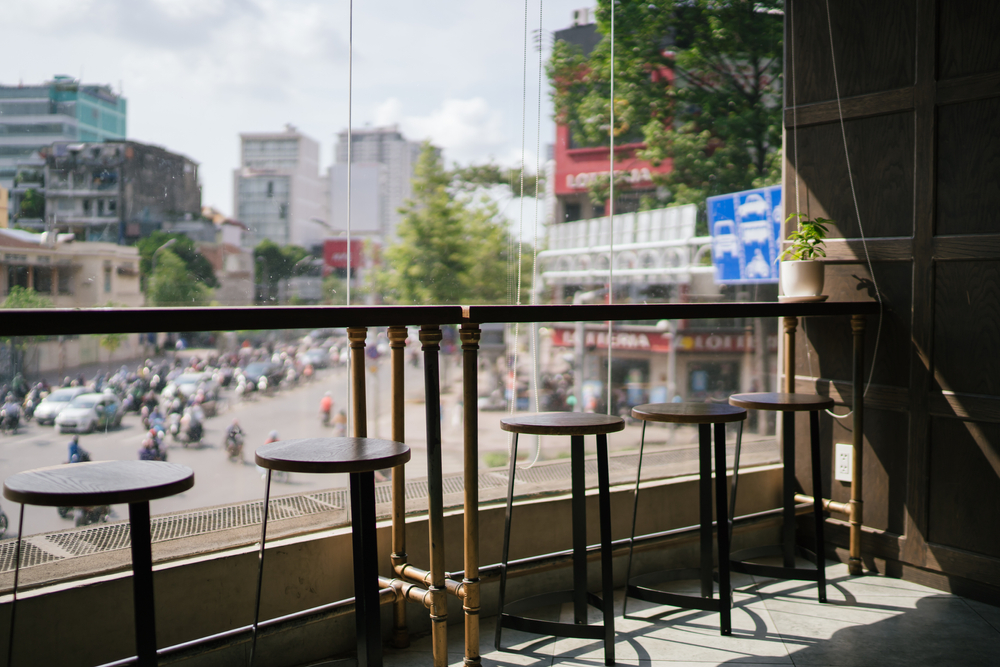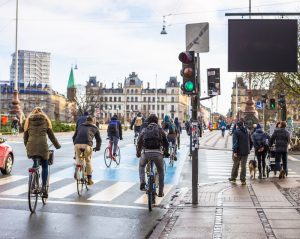People working remotely are often referred to as digital nomads – and the community of digital nomads has grown increasingly in the past years with the demand for freedom and an independent working environment. Most people yearn for the best quality of life while considering affordability, which is usually not achievable in their own home country.
Well, you can get the best of both worlds in some cities that were published by Big 7 Travel and named the best cities to work remotely. We have chosen cities based on the needs of a digital nomad – which include:
- A fast internet connection
- Ample co-working spaces
- Affordable accommodation
- Great opportunities
- An awesome community
Keep reading for our list of the top ten cities to fulfill your digital nomad dream!
Table of Contents
1. Bali, Indonesia

Bali is one of the top places for digital nomads looking to work remotely. Its picturesque landscapes are a bonus, but what really draws people to work here is its affordability and quality of life. On top of that, the weather here is good and averages about 30º C all year round (but can become rainy from November-April).
It is generally safe in Bali as long as you watch out for scammers and take caution when driving a scooter.
Working remotely requires a good internet connection. Although internet speeds are fairly slow, it has improved a lot with the presence of digital nomads, especially in co-working spaces and cafes.
Traveling around Bali is easy with a bike or scooter, but walking is also an option, as most places are walkable. Places to work include co-working spaces and cafes that are situated in various locations such as ocean fronts, outdoors, poolside, and many more.
Should you decide to live and work in Bali, You can expect the monthly expenses to be more than $1,000/month – which includes housing, food, transportation, and other personal expenses.
Living in Bali is not all about work. Let’s not forget about certain hobbies you can acquire like doing yoga, hiking, and surfing.
Fortunately, communication won’t be a problem, since most locals speak English well.
Before living in Bali, check if you need visas and other requirements like travel insurance or vaccines. Most countries don’t need a visa to enter Bali as long as you stay for no more than 30 days.
If you’d like to extend your stay, simply visit another country over the weekend and come back or acquire the necessary visas to allow you to stay longer. Lastly, it is best to have travel insurance in case you need to go to the doctor.
2. Chiang Mai, Thailand

Located in the northern mountains of Thailand, Chiang Mai is a popular destination for its excellent infrastructure and good weather. Moreover, it is considered a safe city with low violent crimes.
Going from one place to another is easy if you’re using a scooter or taxi. Plus, a tuk-tuk is the most common type of taxi that can also become a shared taxi. For a cheaper method, you can always take public transportation such as Songthaews red buses.
As a digital nomad, it’s easy to find the most suitable space for work here that is functional and trendy. You can create a network through weekly meetups of your local community of nomads. Living in Thailand has always been known for affordability.
The average cost of living per month to live comfortably is more than $1,000/month. To give you an idea of possible monthly estimated expenses, you can expect to shell out about:
- $500 for rent
- $700 for food
- $150 for utility bills
- $50-$100 for transportation.
You’ll also need to add a hobby expenses list or budget for recreational activities in the town, like attending local festivals, visiting Grand Canyon, or going to Chian Rai.
English communication is easy thanks to millions of foreign tourists visiting every year. Similar to tourists, most digital nomads like to live here and learn about its rich culture through night markets and historical places like temples.
You can explore different digital communities to keep you entertained while being away from home. If you’re a newcomer to Chiang Mai, you can choose to live in the Old City, Hang Dong, and Nimman.
3. Singapore

Despite the relatively high prices, Singapore still places in the top 10 of best countries for working while traveling. With its stable economy and quality of life, it’s a recipe for countless opportunities. It is known for many great things such as having the world’s best airport and a gateway to neighboring countries like Kuala Lumpur, Malaysia, and Bangkok, Thailand.
Moreover, most people notice the cleanliness in the country, as you won’t see any litter scattered. It is one of the most orderly cities around the world and most convenient for communication because English is widely used in schools and writing signs and information.
In terms of food, you can find many international cuisines such as Chinese, Indian, and Malay.
As for the cost of living, Singapore is considered more expensive than New York, USA. Expenses for one person averages about $575 per month, excluding the rent.
Despite being more expensive, eating out at restaurants is particularly affordable. The transportation system is top-notch, as it’s easy to get anywhere by train or bus.
Commuting from one place to another is hassle-free and fast using the MRT, where foreigners can purchase EZ link cards for $12 or SimplyGO used for foreign bank cards. Taxis and ride apps like Grab, Ryde, and Gojek are also commonly used in Singapore. So if you can manage the expenses here, you can be assured of the best quality of life this country has to offer.
4. Hanoi, Vietnam

Hanoi is a melting pot of opportunities with budget-friendly co-working spaces. Among the main features of the city why many expats choose Hanoi are its delicious food, inexpensive housing, and a huge network of digital nomad communities. With numerous co-working spaces that attract all types of nomads such as Toona, Moonwork, UP, and COGO, it’s no wonder Hanoi is a popular spot for remote work.
If there are no co-working spaces available, countless cafes with excellent Wi-Fi are other affordable alternatives for afternoon productivity. And when you aren’t spending the day working, there are tons of attractions to explore such as the Temple of Literature, Museum of Ethnology, Bach Ma Temple, and Hoan Kiem Lake. Complete the experience by trying out local food such as the local favorite sandwich Banh Mi, the famous egg coffee at Giang Cafe, and a delicious bowl of Pho noodles or Cha Ca.
If you’re looking for a quality lifestyle on a budget, Hanoi is your top pick. It’s considered safe with a low violent crime rate and low cost of living. Depending on your lifestyle, the cost of living can range from $700 to $1,500 per month. The breakdown of costs is an average of $400 rent, $300 food, $70 utilities, and $60 transportation costs.
As a digital nomad, expect to see yourself meeting budget backpackers, fellow nomads, travelers, and expats. If you’re working in Vietnam, the average salary is about $150 a month for low-paying jobs but can go as high as $500. Although the weather is tropical throughout the year, you can experience flooding during the rainy season.
Should you decide to work and live in Vietnam, most foreigners can enter without a visa but for a minimum number of days. You can check your country’s requirements first to know the limitations and conditions when entering. If you need to stay longer, some may be given a single-entry visa and stay for up to three, six, or 12 months.
4. Shanghai, China

Shanghai is one of the largest cities in Asia and among the most influential cities in China. It’s a blend of Eastern and Western metropolises offering a world of opportunity.
Getting around the city is convenient and easy with tons of subway and bus lines available. However, rush-hour traffic is a hassle, as the streets are crammed with cars and commuters.
The weather is what you would expect in an Asian country. It can be extremely hot and humid in summer and cold and dry in winter.
It is generally safe in Shanghai, as there is little to no crime here. Major crimes are rarely ever heard of in this bustling city.
You can expect a variety of activities to do, such as visiting festivals and art shows or taking a stroll by the Huangpu River. Whether you choose to eat out at restaurants or street vendors, the delicious local cuisine offers unique tastes and experiences. If you’re looking for a place to stay, you’ll mostly find apartments and some villa compounds.
Overall, the cost of living in Shanghai is high – but the longer you live here, you’ll be able to find some good prices in accommodation and goods. Basic needs like food and clothing are usually inexpensive. Plus, it’s very common to negotiate in local stores and markets to get a better price. However, if you decide to buy imported goods, expect these items to be costly.
If you plan to work remotely in Shanghai, the best time to visit is the spring season from March-May or the autumn season from September-November. You can get lower rates if you visit from September-December, February, and June.
Depending on your country, you may need a visa to come to China. Most people can get a tourist visa that will allow them to stay for up to 60 days.
5. Dubai, UAE

Dubai welcomes over 200,000 expats looking to work in the country. It’s one of the most luxurious cities with a high cost of living but guarantees the best quality of life. Typical weather in Dubai is usually a long hot day spanning eight months all year round.
It’s a great place to work, and you can meet people of diverse cultures and nationalities. Since Dubai is a Muslim country, it’s important to consider their rules and customs to avoid disrespecting their culture or disobeying the law.
Dubai’s popularity among digital nomads has enabled the making of a digital nomad visa which allows you to stay for up to a year.
The visa costs $287, and you’ll also need to pay additional fees for processing fees and health insurance. You can easily apply online through their website or email. However, not all online workers can be qualified for this visa. To be eligible for a digital nomad visa, you need to make sure to make at least $5,000/month in income.
If you plan to work only for a short time or don’t meet the eligibility requirement above, you can always apply for a tourist visa. Once you get a visa, start looking for a decent place to stay. There are thousands of accommodations for every preference and budget, from modern to traditional and big or small places.
Wi-Fi in Dubai is usually strong and fast enough to handle calls and online conferences. If you need to commute to different places, getting a local taxi is the most common, most convenient, and cheapest mode of transportation.
In your free time, you can explore the city’s renowned shopping mall, Dubai Mall, go skiing on their indoor ski slope, watch fish in Dubai Aquarium, and chat with the locals and fellow nomads.
6. Tokyo, Japan

Tokyo is one of the top tourist destinations in the world. It is loved by visitors for its rich culture, historical places, and bustling atmosphere. Although we think of it as a bustling city, it is also known for its feeling of quietness.
It’s a place for nature lovers, as the city is covered by 3.6% greenery with forests and national parks. Tokyo has been a top city for quality of life, but be prepared to increase your daily expenses as it is relatively expensive in Japan.
If you like living in Japan but want to cut costs, you can also look into living in Kyoto, a city smaller than Tokyo with a big community of digital nomads.
Tokyo offers many wonderful things to do such as going to ancient temples and museums, tasting delicious local food, and appreciating natural landscapes. When you think of Tokyo, you might automatically think of tiny apartment spaces. Even the smallest accommodation can still be expensive, at about $400/month.
However, there are several ways to save money on lodging. You can opt for capsule hotels that cost about $30/night or hostels that’ll cost about $15-$40/night. You can also find monthly rentals that’ll cost $400-$500/month, but expect these places to be very small.
In terms of food, we recommend buying from a local grocery store or market and refrain from eating out at restaurants so you can save more. A typical ramen meal costs around $5-$10. If you eat out at restaurants, it’ll cost you about $10-$50 per meal.
One of the best things about living in Japan is the wide transportation network with multiple lines. A single ticket can cost about $2, so if you prefer something cheaper, you should opt for a bus or ride your own bike.
Overall, living in Tokyo is peaceful and quiet – and ultimately clean compared to other cities.
7. Seoul, South Korea

In the heart of South Korea, the sleepless city Seoul is best known for K-pop and technology companies like Samsung and Hyundai. It’s a captivating city rich in culture, fashion influence, and beautiful national parks. It’s one of the most developed cities in the world that houses impressive ancient temples as well.
Living in Seoul requires a monthly budget of about $2,000/month. Depending on wants and needs, typical monthly rent can range from $600-$1,000/month. Plus, you’ll be spending about $600 on food, $300 on a workspace, and $400 on personal expenses.
Working in Seoul guarantees fast internet connections and more than 20 co-working spaces available, including JUSTCO, SPACES, and WeWork. Seoul has different regions you may want to try out depending on the vibe. For more English-speaking communities, Itaewon is the international hub of Seoul – and is teeming with nightlife and foreigners.
To experience youthful energy and cheaper prices, the university areas Hongdae and Mapo are the best places, as they’re intended for students. It’s a perfect spot to meet locals on a cheaper budget.
Looking for more affordable accommodation is still possible in Seoul. You can get as low as $7/night in dormitories and guest houses and about $20/night for a private room.
One of the things you’ll notice about food is that chicken restaurants and BBQ places are quite popular in South Korea. Hanging out and having a drink or two after eating out at a BBQ place is common among locals. You’ll find many street markets to try out local street food on a budget. The best way to venture into local food is walking along the busy streets and see what you like.
8. Ho Chi Minh City, Vietnam

Ho Chi Minh has been popular with foreign travelers for its affordability and good food. As a digital nomad, it is important to have fast internet speeds, great co-working spaces, and a low cost of living – and this city has all that. However, some places have an internet speed of 10mbps – which is just good enough to do research and low-quality video calls.
Although the city is generally safe, it’s still common to experience minor crimes, like pickpocketing.
If you’re staying for the long run, you can find many scooter rentals that are cheap and convenient. If you don’t fancy driving, local transport and private car bookings like Uber and Grab are available as well.
The city offers more than 30 reliable co-working spaces, including Dreamplex, one of Forbes best coworking spaces in Asia. For just a minimum of $700/month, Ho Chi Minh is incredibly affordable and attractive to many.
Despite its affordability, it can be difficult to communicate with the locals, since English is not widely used here – but locals are always friendly to help you out.
Moreover, this vibrant city guarantees diverse experiences. From canoeing in the Mekong Delta to celebrating the Vietnamese New year, there’s always an exciting event to look forward to.

















